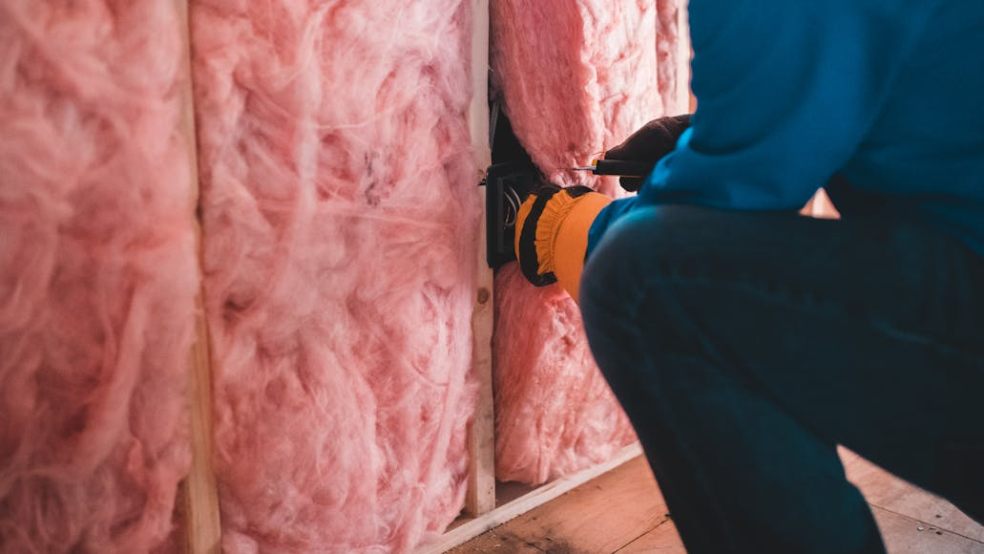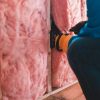
Is Commercial Building Insulation Worth It? The ROI Breakdown
When you think about cutting costs in a commercial building, insulation may not be the first thing that comes to mind. Yet, this hidden layer can affect everything from energy bills to comfort levels inside the building, and even long-term property value.
Many business owners ask this simple question: Is insulation worth the investment? To answer that, you need to look beyond the upfront cost and focus on the return it brings over time. Energy savings, reduced maintenance, and better efficiency contribute to the bigger picture.
In this article, we'll explain the real numbers and benefits of upgrading or adding insulation so you can determine whether it makes financial sense. Read on for the details!
The Hidden Costs of Poor Insulation
One of the biggest drawbacks of poor insulation is higher operational costs. When walls, ceilings, or roofing allow conditioned air to escape, heating and cooling systems have to work more to maintain indoor comfort. This extra workload drives up monthly energy bills and shortens the lifespan of heating, ventilation, and air conditioning (HVAC) equipment. While the impact may not be evident at first, the financial burden grows year after year.
Inefficient insulation also creates problems for the people inside the building. Temperature inconsistencies often leave some areas too hot while others remain uncomfortably cold, which disrupts tenant satisfaction and team productivity.
In addition, weak insulation can contribute to moisture issues. Condensation and water infiltration raise the risk of mould growth and gradual structural damage. Fixing these problems usually requires costly repairs that you could prevent with proper commercial insulation.
When insulating your office building, consider consulting an insulation contractor to evaluate your property's specific needs. A professional assessment can pinpoint areas where energy loss is most severe and recommend the right type of insulation for flexible ducts, walls, roofs, or piping. This will allow you to avoid unnecessary expenses, select materials that deliver the best performance, and ensure the installation is done correctly.
How Insulation Delivers ROI
The most direct return on insulation is tied to energy efficiency. When commercial building insulation is installed properly, it enhances thermal performance and helps regulate indoor temperatures. This reduces reliance on heating and cooling systems, lowering monthly energy costs, which improves the bottom line.
Return on investment (ROI) also shows up in reduced maintenance expenses. HVAC equipment doesn't need to run as often, which means fewer service calls and longer-lasting systems.
For larger facilities, this can represent substantial savings over the years. In some cases, owners also benefit from rebates or tax credits for energy-efficient upgrades, which accelerate payback timelines.
Different materials contribute to ROI in specific ways. Flexible blanket insulation, for example, provides a cost-effective way to cover large areas, while duct board supports better air distribution for ventilation systems. Pipe insulation also reduces heat loss in mechanical systems, adding another savings layer for facilities with extensive piping networks.
Strategies for Maximising Returns
Upgrading insulation is smart, but getting the best return requires careful planning. Each step in the process contributes to the overall financial outcome:
Start With a Building Assessment
The first strategy is to begin with a thorough building evaluation. Energy audits identify where conditioned air is escaping and highlight the areas that offer the greatest potential for savings. Roofs, exterior walls, and duct systems are often the biggest culprits, so addressing them first provides the fastest results.
Select the Right Materials
Once you identify problem areas, choosing the right materials becomes the next priority. Extruded polystyrene is a strong option for roofing applications because it resists moisture while maintaining insulation value. Inside the building, materials designed with acoustical benefits can improve comfort by reducing noise in workspaces. These choices improve energy efficiency and enhance the day-to-day experience for tenants and team members.
Focus on Quality Installation
Finally, the effectiveness of insulation depends on how well it's installed. Even the most advanced products can't perform if gaps or voids remain. Partnering with experienced professionals ensures the work is done correctly and that the building receives the full benefits of the upgrade. In some cases, innovative materials with specialised design features may offer a balance of thermal efficiency and durability, giving owners greater long-term value.
Boosting Value Beyond Energy Savings
While energy savings are often the first benefit owners notice, insulation upgrades support long-term value in other ways. Improved interior acoustics create a quieter environment, making office and retail spaces more appealing. This added comfort factor often improves tenant satisfaction and retention, which supports steady rental income.
For businesses thinking about sustainability, insulation is a crucial step toward creating an eco-friendly company. Sustainable structures reduce energy consumption, lowering the property's overall environmental impact. Many tenants now seek spaces with eco-friendly features, so insulation can enhance market appeal when leasing or selling.
Insulation also provides long-term protection for building materials. Controlling temperature and moisture prevents premature wear that can weaken structures. That means fewer repairs and a property that maintains its value over time. Whether you plan to keep a building for decades or position it for resale, these benefits contribute to a stronger return on investment.
Conclusion
Insulation is a strategic asset in commercial buildings. While the initial investment may seem significant, the financial returns and long-term benefits are undeniable. From improving thermal performance and extending HVAC equipment life to enhancing acoustical performance and protecting structures, insulation supports both financial returns and property value.
For business owners seeking cost-cutting measures, insulation stands out as a practical option. It improves thermal efficiency, creates more comfortable spaces, and supports sustainability goals without requiring constant oversight. When you choose the right materials and ensure a quality installation, commercial insulation is a smart, durable upgrade that pays dividends year after year.

















